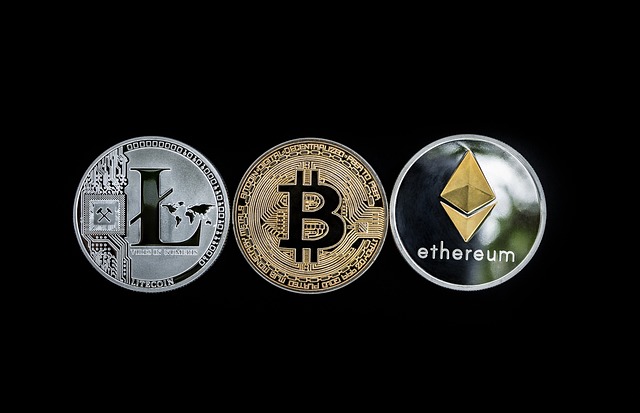The Best Cryptocurrencies to Trade for Beginners in 2023
In recent years, cryptocurrencies have gained significant attention, drawing the interest of both seasoned investors and newcomers alike. With the rapid evolution of the digital currency landscape, beginners may find themselves overwhelmed by numerous options and market volatility. In this article, we will explore the best cryptocurrencies to trade for beginners in 2023, providing insights into each one’s characteristics, potential for growth, and user-friendliness.

Understanding Cryptocurrency Trading
Before we delve into specific cryptocurrencies, it is essential to understand what cryptocurrency trading entails. Cryptocurrency trading involves buying and selling digital currencies on various exchanges. The primary goal is to make a profit by capitalizing on price fluctuations. Unlike traditional trading in stocks or commodities, trading cryptocurrencies can be highly volatile, meaning prices can change rapidly, offering opportunities for significant gains—as well as risks of loss.
Choosing the Right Cryptocurrency
When selecting a cryptocurrency for trading, beginners should consider several factors, including market stability, liquidity, community support, and ease of access. Additionally, understanding fundamental principles like blockchain technology, market trends, and analysis techniques can significantly enhance a trader's success.
The Top Cryptocurrencies for Beginners
1. Bitcoin (BTC)
Bitcoin, the first cryptocurrency ever created, remains the most well-known and widely used digital currency in the world. Established in 2009 by an anonymous entity known as Satoshi Nakamoto, Bitcoin offers a decentralized currency that operates on blockchain technology.
- Market Dominance: Bitcoin maintains a significant market share, often accounting for more than 40% of the total cryptocurrency market cap.
- Volatility: While Bitcoin is known for its price swings, it has also demonstrated a long-term upward trend, making it an attractive option for beginners.
- High Liquidity: As the most traded cryptocurrency, liquidity is high, allowing traders to enter and exit positions with relative ease.
In my opinion, Bitcoin is an ideal starting point for newcomers due to its established reputation and extensive resources available for learning.
2. Ethereum (ETH)
Launched in 2015, Ethereum introduced the concept of smart contracts, enabling developers to create decentralized applications (DApps) on its platform. This innovation has fueled Ethereum's rapid growth and adoption.
- Smart Contracts: Ethereum's decentralized platform enhances its functionality beyond simple transactions, making it appealing to developers and investors.
- Second Highest Market Cap: Following Bitcoin, Ethereum often follows with a strong market capitalization, attracting attention from traders.
- Active Community: Ethereum boasts a robust developer community continuously working to improve the network and increase its usability.
In my view, Ethereum is an excellent choice for beginners who want to explore the world of decentralized applications while still trading a well-established cryptocurrency.
3. Binance Coin (BNB)
Originally created as a utility token for the Binance exchange, Binance Coin has evolved to become a significant player in the cryptocurrency market. BNB is used to pay fees on the Binance platform and for various other applications within the Binance ecosystem.
- Utility: BNB’s value is tied to the success of Binance, one of the largest cryptocurrency exchanges globally, creating a strong use case.
- Discounts: Users can receive discounts on transaction fees when using BNB, making it appealing for frequent traders.
- Growth Potential: With the expansion of the Binance ecosystem, BNB continues to show promising growth, attracting more investors.
I believe Binance Coin presents a unique opportunity for beginners, especially if they plan to trade frequently on the Binance platform.
4. Cardano (ADA)
Founded by one of the co-founders of Ethereum, Cardano aims to create a more secure and scalable blockchain through a research-driven approach. Its unique features make it stand out in the crowded cryptocurrency market.
- Strong Fundamentals: Cardano’s commitment to peer-reviewed research and academic collaboration ensures a robust foundation for its technology.
- Scalability: Cardano’s ongoing developments aim to solve the scalability issues faced by many cryptocurrencies, making it a viable long-term investment.
- Community-Driven: The active Cardano community supports development and promotes adoption.
In my opinion, Cardano is an excellent choice for those who prioritize projects with strong underlying principles and community support.
5. Solana (SOL)
Solana has garnered attention as a high-performance blockchain platform, known for its lightning-fast transaction speeds and low fees. This has led to its rapid adoption among developers and users alike.
- High Speed: Solana's ability to process thousands of transactions per second positions it as a formidable competitor in the blockchain space.
- Low Fees: Transaction costs on the Solana network are significantly lower than on many other platforms, making it attractive for everyday users.
- Expanding Ecosystem: Solana’s growing ecosystem includes various DApps and projects, increasing its utility and potential for investment.
I find Solana to be a compelling option for beginners who are looking for a fast and efficient platform to invest in cryptocurrencies.

Trading Strategies for Beginners
Once you have selected the cryptocurrency you wish to trade, it's essential to have a strategy in place. The following are some common trading strategies that beginners may find useful:
1. HODLing
HODLing refers to the long-term strategy of buying cryptocurrencies and holding onto them regardless of market volatility. This approach is often favored by beginners who may not yet be comfortable with day trading.
2. Dollar-Cost Averaging (DCA)
DCA is a technique that involves investing a fixed amount of money regularly, regardless of the cryptocurrency's price. This strategy helps to mitigate the impact of volatility since it allows investors to purchase more coins when prices are low and fewer when prices are high.
3. Swing Trading
Swing trading involves taking advantage of short-term price movements. This strategy requires more active management and market analysis but can yield higher profits over shorter time frames.
4. Using Stop-Loss Orders
Stop-loss orders are a crucial tool for managing risks in cryptocurrency trading. By setting a predetermined price level at which to sell an asset, traders can protect themselves from significant losses during market downturns.
Conclusion: Navigating the Crypto Landscape
As the cryptocurrency landscape continues to evolve, beginners must do their due diligence before investing in any digital asset. The cryptocurrencies discussed in this article—Bitcoin, Ethereum, Binance Coin, Cardano, and Solana—offer a range of features and growth potential, making them suitable options for novice traders.
It is essential for beginners to educate themselves, follow market trends, and adopt robust trading strategies while remaining aware of the risks involved. The world of cryptocurrency trading can be exciting and rewarding, but it requires careful navigation.
In conclusion, with proper research and strategic planning, beginners can carve out their paths in this dynamic market and potentially reap substantial rewards.